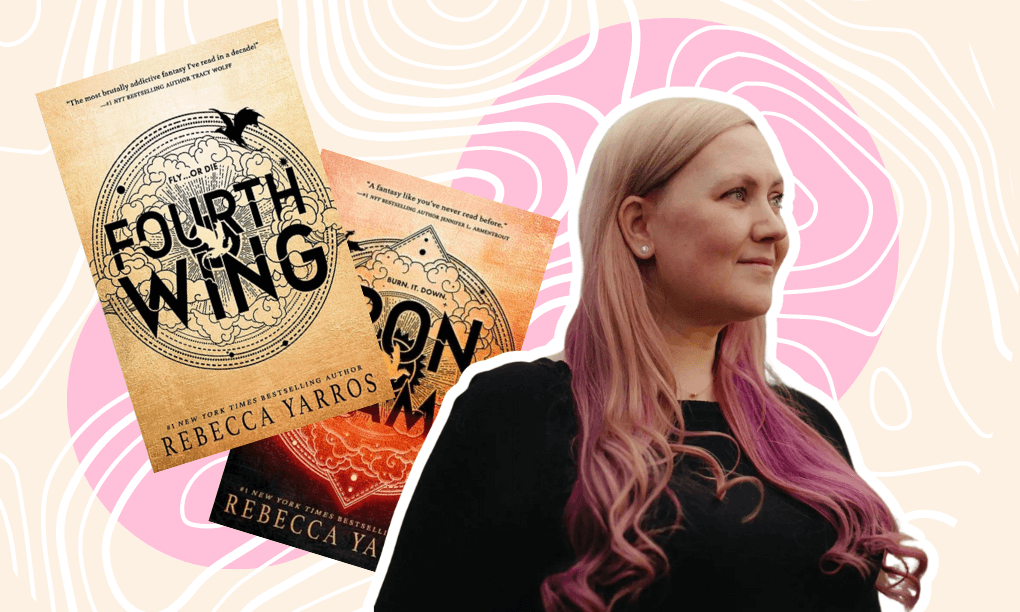If you’ve started looking for graduate jobs or you are struggling to land an interview with your current CV, our BooksRun‘s article might help you with some ideas on how to add value to your application in the eyes of employers. Below we will discuss the most important techniques for organizing your CV and Cover Letter and also the things that you should avoid. Here you can find examples of CV templates and examples for different career paths (you can find CV builders on the internet as well).
Structure of the CV
It is important to understand from the beginning that recruiters are busy people and they have tons of CVs to go through in order to find the right candidate for a job. So it is a good idea to appreciate their time from the start and make sure they do not get bored on the 2nd paragraph you have written. This also means that your CV will not end up in the bin after 6 sec since it is the average time a professional recruiter will spend looking at an individual’s CV.
Therefore, it is important to make sure that your CV is organized in a manner which is convenient for recruiters’ eyes. So what is a CV? What does CV stand for? How to write a CV? CV, aka curriculum vitae or resume, lists your academic qualifications and professional experience in order to demonstrate to recruiters your suitability for the job you are interested in. Usually, a recent graduate’s CV should be no longer than one A4 page and it should comprise 5 sections:
- Personal Details.
- Education.
- Professional Experience.
- Skills.
- Interests & Achievements.
Personal Details
Here you include your name in capital letters in the middle of the page, your full address, your email, and your mobile phone number. For example:
ELISABETH PARKER
34 Park Lane, Boston, MA 02210 | elisabeth.parker@gmail.com | +1 321-209-4512
Education

This is the centrepiece of your CV if you are a recent graduate. Start with the most recent schooling and organize other educational experiences in descending chronological order. The most important information should include the NAME of the university you’ve attended, your FIELD OF STUDY, the title of your THESIS work and the FINAL GRADE obtained. Pay attention to the font tools that should be used in a systematic manner to address the attention of a recruiter. Below is an example of how you can organize each educational experience for your CV page:
EDUCATION
| College Name | City, State, Country |
| Full Title of Your Program | mm/yyyy – mm/yyyy |
| Achievements: Obtained/Predicted Grade (prizes won/titles awarded among how many participants).Thesis: Title of your Thesis Work.Core Modules: 3 Core subjects that you should adjust for each job application. |
Professional Experience

The aim of this section is to demonstrate to an employer that you have commercial awareness and that you possess skills required for the advertised job. So don’t just list all the internship experiences and part-time job you had, but always show which relevant skill you acquired on these positions. Therefore, you might need to adjust your skills each time you apply to match the job description precisely. Make sure you create bullet points for each responsibility and each acquired skill as it makes your CV more legible. You should list the exact types of strategies you have developed, the research you have undertaken, and name the titles of the companies you have created a partnership with. Ideally, each skill or responsibility should be one line long or at least no longer than 2 lines. You can use the following words to indicate the actions undertaken:
- Performed…
- Assisted…
- Coordinated…
- Established…
- Collaborated …
Each responsibility listed should convey concisely which skill you have developed. You should avoid using such broad terms as “developed strong presentation skills” but rather give exact tasks and a numerical outcome if applicable. Below is an example of how you can present your work experience skills:
PROFESSIONAL EXPERIENCE
| Company Name | City, State, Country |
| Position Held | mm/yyyy – mm/yyyy |
| Key Skills: excellent communication + presentation skills developed through weekly presentations to unit directors Executed analysis of YouTube targeting campaigns’ data for 10 institutions. |
Skills
Here you should include your knowledge of:
- Foreign languages with a description – bilingual/native, full working proficiency or conversational;
- Software skills and you can indicate with dots how well you can use these programs;
- Certifications/Diplomas that you have done in the past.
Below is the example of the presentation:
| SKILLS | |
| Languages | English – native, French – fluent, German – conversational |
| Software | Knowledge of MS Excel, Word, Access, PowerPoint, SPSS. Bloomberg Certification. |
Interests and Achievements
It is an opportunity to list your extra-curricular activities, sports, and other achievements that demonstrate your competitive and ambitious nature to potential employers. List music or theatre classes, modelling school or hang gliding student society: this means that you have developed your creative side, you have strong communication skills, and are not afraid to make presentations in front of large audience. You can add your thesis work if you are interested in academic career (academic CV).
Things that Might Kill your CV
- Don’t use clichés and general buzzwords. Use concise descriptions of your professional skills you have acquired and prove them with real examples. You can use the STAR technique for this.
- Don’t list all the experiences you have ever been to, all the skills you have developed and all the part-time jobs you have had in your lifetime. Do include the experience which is most relevant for the job you are applying for!
Top Skills for your CV
Since now you are aware about the structure of your CV and what information must be presented there, let’s take a closer look at the skills that employers are particularly looking for. Of course, the skills that you are going to list on your CV will depend on the specific role that you are applying for. But still, there is a set of transferable skills that each employer would like job applicants to possess. These are so-called soft-skills which we are going to discuss below.
What are Soft-skills?
These are the skills that represent general knowledge and emotional intelligence which are essential for successful work inside the company. They are like employability competencies which will make a person efficient at work and pleasant to work with. These are transferable skills because they can be applied in any work environment and it does not matter in what domain the company is operating. Such skills can be developed over the time once the person is progressing with his or her career. To make sure that your potential employer gets interested in your profile and trusts the skills you have listed, you need to provide real examples where you’ve successfully implemented such skills and in what sort of environment.
Soft-skills include interpersonal and professional competences which are not easily quantified (it is not hard-skills which can be measured in terms of levels or diplomas – for example, the level of a foreign language or computer software knowledge).
What Graduate Soft-skills are Highly in Demand?

Every year job market relates to the changes in technology and economy but still, there are skills that will get you hired since they can be applied to every career. Although most graduates tend to focus on hard-skills, most job interviews are about fit questions where you have to demonstrate your soft-skills. According to the research carried out by Business Insider, around 57% of the surveyed employers said that these skills are most important. These are the competences that will help you to become a good teammate, a leader, and an effective worker. Nowadays, such competences as how to work in a multicultural environment, how to survive in an environment with switching priorities, how to manage time in an efficient manner are highly valued by employers. They also help employees to progress at work and create an efficient and friendly atmosphere in the workplace.
1.Communication skills
For building successful relationships at work and progressing with your tasks, you have to be able not only to share your ideas but also to listen to others’ suggestions and concerns. Therefore, during your interview process, you should listen carefully to the things that your interviewer is telling you to ensure an effective exchange of ideas and information. It is a two-way process and you should prove to the employer you are good at speaking as well as listening and responding to others.
2.Teamwork
This is one of the fundamental qualities expected of you, dear job seeker. In today’s working environment you need to be able to collaborate and compromise with people coming from all sorts of backgrounds. To become a successful team member, you should control your own ego, encourage other people’s initiatives and be able to interpret other peoples’ actions. At the times of globalization, when organizations work on massive projects spanning several continents, it is no longer possible to do all the work on your own. Thus, during your interview process, you should give examples of how you’ve successfully collaborated with others and came to good result in order to persuade your employers that you are great as a teammate.
3.Flexibility
Very often at work you will not be able to stick to a firm plan and therefore you will have to adapt your strategy and your actions along the way. Hence, a lot of recruiters are looking for people who are actually able to switch priorities and manage ambiguity without losing enthusiasm for achieving good results. During your interview and on your CV it is always a good idea to mention how you’ve came up with a good decision or successfully completed a project in a dynamic environment.
4.Time Management
The concept “time is money” has been around for centuries and it became even more pressing in the 21st century. Nowadays, you should value your time as well as the time of your clients, your managers, and your colleagues. For this reason, being efficient at work you are doing and at decisions you are making is a prerequisite for a successful career progression nowadays. You should always mention on your CV that you’ve been able to resolve a particular situation within a limited time frame which can be a proof of the fact that you have maximized your productivity to achieve a good result. Here you can read about ways to raise your work efficiency.
And here is proof that the employers have always valued this skill:
“The quality of your work is obviously important, but so is volume. Managers want to see if you get good work, and a lot of it, done.”
— Julie Morgenstern, author of “Time Management from the Inside Out”
5.Problem Solving
An ability to tackle a problem and find a positive solution that satisfies both sides is a valuable skill to have. You should formulate sentences on your CV under the section “Work Experience” to demonstrate how you overcame certain difficulties. You should give a concrete example of how you did it. For instance: “you encountered a complex problem A, you used innovative ideas B, and drew the following resources C, which helped to extract the positive result D”.
6.Leadership
Being a good team member is not all that is required by the employer. Sometimes you need to step up and manage the team in order to get the best results out of it. You need to have organizational skills, the initiative, and the drive to perform well and not to be easily satisfied with mediocre results. This will demonstrate to the employers that you have long-term career goals, you are responsible and that you are ready to take initiative to achieve the best outcome. On your CV you can write examples of the social / team sports positions that you’ve held in the past as well as decisions and solutions you have implemented in corporate or academic environments.
7.Resilience
Managing stress at work, making mistakes and finding a way to correct them is a key quality to survive the job in a dynamic environment with a lot of responsibilities. Employers do not expect you to be a superman or a superwoman, but they do expect you to be responsible and to be able to withstand the stress and problems you might encounter at your workplace. To have tactics for coping with unforeseen failures and mounting pressure will guarantee emotional welfare for you and predictable high-quality results for your employers. Candidates with higher levels of stress management are usually better at problem-solving as well. Therefore, if you plan to work in such stressful professions as law, investment banking or medicine, you should be ready to discuss at the interviews how you’ve managed difficult situations, how you cope with stress and your ability to deal with negative feedback.
8.Motivation
This is your ability to inspire yourself and others around you, to come up with strategies and ideas that will drive you to achieve great results. This is one of the most highly valued skills that the employer is looking for in a recent graduate. This is the trait that will make you stand out from the crowd of other graduates looking for the same job as you. Therefore, it is extremely valuable to indicate on your CV and during the interview process why you’ve decided to take a certain job or you‘ve started practicing a specific type of sport and the results that you have achieved. For example, on your CV you can indicate: “captain of a volleyball team at high school (prize – best player of the 9th form)”.
9.Creativity
An ability to think independently, to synthesize multiple sources of information will help you to draw personal conclusions and make innovative decisions. Intuition and imagination will help you to find solutions where others could not see them. Hence, it is important to indicate on your CV that you possess such fresh thinking capabilities: you should concisely describe the novel situation in which you’ve worked and how you’ve successfully come up with an idea or suggested a solution to resolve it. It can be about a new strategy, creative design, or innovative ideas that have helped the business and its clients.
10. Confidence
This quality is applicable both to your private as well as professional life. It starts with your self-belief, when you trust your intuition, you are self-aware and you believe that you can deliver good results. Of course, this should be based on your real results and achievements rather than your ego. When you are good at things you are doing, when you find creative solutions to arising problems, when you lead your team to a successful completion of a task – this should make you confident with your abilities. During the interview process, you should stand out as someone who has awareness of who he/she is, who can take the responsibility and who knows how to deliver great results.
Nevertheless, today there are thousands of candidates with impressive skills and multiple achievements that are neatly presented in their CVs. Every candidate positions oneself as a passionate, proactive and determined team player and leader and it becomes harder and harder for employers to figure out which applicant they need to select. That is why Cover Letter is particularly useful from a recruiter’s point of view because it tells the story behind the CV and explains the motivation of an individual to work on this particular position.
Here we will touch on the structure of the letter and the information you should include to raise your chances of landing an interview. Never forget that the one who has the information is the one who rules the world!
Purpose of your Cover Letter

The main idea of a Cover Letter is to provide better insight for an employer on the sorts of experiences and education you have already mentioned in your CV. This does not mean that you have to duplicate the same information; on the opposite, you need to be even more concise not to bore your employer but at the same time shine a light on your achievements, research and projects undertaken. Crafting a cover letter is indeed a special art. To master it, you should practice as much as you can and get the top-notch advice. That is when Martin Yate’s book Knock ’em Dead Cover Letters: Cover Letters and Strategies to Get the Job You Want is essential!
Therefore, through your Cover Letter you have to find a way to persuade your employer why you are the best candidate for the job. In a way, you can treat it as a sales pitch where you are marketing your skills to get an interview.
Structure of your Cover Letter
By using a rule of 3, you should structure your Cover Letter in 3 main paragraphs where you state:
- your interest in the advertised position and why the company should hire you;
- your work experience up-to-date which meets the requirements of the job;
- the skills you have mastered and the competences you would like to gain with the company.
In the top right corner of your Cover Letter you write your personal details like shown below:
Elisabeth Parker
34 Park Lane
Boston, MA 02210
+1 321-209-4512
elisabeth.parker@gmail.com
Then on the left you always write the date of your application:
21.11.2018
Underneath the date, you should write the coordinates of the company and the person to whom you are addressing your motivational letter. It means you should do a prior research on the internet or do some cold-calling to make your letter sound more personal. Among thousands of applicants, it will show already that you have made some efforts to get to know the company and their website. This will make the recruiter look more attentively at your letter. For example:
Alan Oldham,
Head of Derivative Products Division
Morgan Stanley
1585 Broadway
New York, NY 10036
Important Information
In the first paragraph, you state that you are a student and you mention the subject in which you are majoring and the name of your school. Consequently, you explain how you found out about the company and what you like about their services/culture/projects. You can write that you heard about their company through your school, your friend, their website, career forum etc. At the end of the paragraph, you write what position you are applying for. Here is an example:
“I was recently introduced to your company via an insight day program on my university campus. I was impressed with what I learned about the entrepreneurial culture of your firm and the international scope of projects that interns in your company get to work on. I am interested in pursuing a ___ position at your company, and have enclosed my resume and Cover Letter below.”
In the second paragraph, which effectively contains the most important information of your letter, you should mention no more than 3 experiences which are the best fit for the job you are applying for. The most important is to be precise with the type of projects, responsibilities, and research you have undertaken. If you have made presentations for the company’s clients, assisted the directors, established a partnership with 5 partner organizations, you should definitely write it down in this section; it is even better if you could state a numerical outcome because employers like concrete results. Student societies and extra-curricular activities with managing projects, money-raising campaigns and Everest climbing results can be included as well.
In the third paragraph, you can write down that you have developed certain expertise and that you would like to implement these skills while working on the company’s projects; at the same time, you would like to improve your industry awareness, for example. Here is an indication of what to mention in the last part:
“Coming from an engineering background and having worked on numerous technical projects, I have developed strong numerical and analytical skills which I would like to use to assist the firms in the Midwest region to reduce their operational expenses. Impressed by your portfolio of clients in processing and construction industries, I look forward to joining your company and making a real contribution as a member of your team.”
At the end of your letter, you can include a digital signature to make it look more professional.
Extra Hacks
It is better to enclose a Cover Letter in pdf format with an email where you should write a few lines to describe yourself and the position you are applying for.
Always show your letter to another person to check the spelling mistakes as well as to see if it is clear what you are trying to say.
Keep it simple and short.
Adapt your letter to the vacancy, do not send generic Cover Letters – they will not do a good job for you!
You can find samples of Cover Letters adapted for different industries here.


